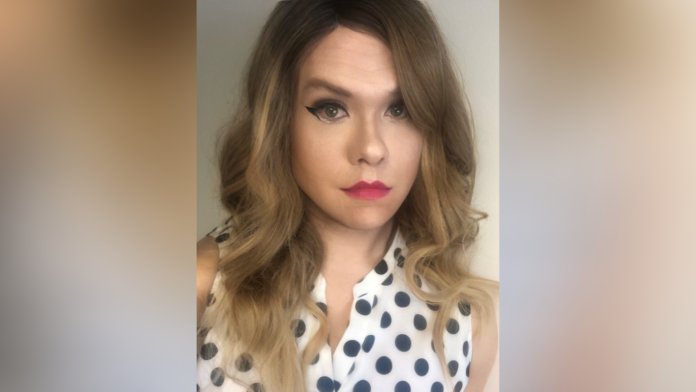Law alumna Lyra Foster’s personal experiences and passion for social justice led her to law school. Today, she applies her argumentation and defense skills to her work as an attorney and advocate.
Foster, a 2020 graduate of Mercer Law School, is a defense litigation attorney at Dennis, Corry, Smith & Dixon in Atlanta and one of the few openly transgender lawyers practicing at a major Georgia law firm. She also represents trans people post-conviction through her pro bono practice and is the founder of a support network for the trans community.
“Working as part of a team to break down a problem and come up with the most effective solution to it is something I will always like and that will always provide meaning to me in any context, whether that’s social advocacy or my day-to-day work,” she said.
Challenges in Foster’s past gave her an inside look into the law as well as the need for criminal justice reform. Once an addict, she was incarcerated for a short period and spent time in rehab.
After getting sober, she went back to school to earn her undergraduate degree from Texas State University, with her sights set on being a social worker. However, those plans changed after a close friend was convicted of a crime. She was called as a character witness during sentencing, and that experience combined with her personal history made her decide to pursue law school.
Foster said she was quickly sold on going to Mercer. One thing that attracted her to the school was the Habeas Project, a clinic through which third-year students help represent clients in noncapital, post-conviction cases. While Foster’s LSAT (Law School Admission Test) score was high, her undergraduate GPA was not because of classes she had taken prior to her recovery. But, Mercer saw her potential.
“Mercer worked with me because I think they saw what I was passionate about,” Foster said.
In addition to being involved in the Habeas Project while a student, Foster also founded a program for criminal record restriction — a court-ordered process that restricts a person’s record from public view — within the Middle Georgia Access to Justice Council. Foster created the program after doing work in this area during a summer job.
“Mercer has always emphasized giving people practical experience,” Foster said. “I had a lot of practical experience, and then Macon has a lot of unfilled needs as far as the nonprofit space. I got to do things as a law student under the student practice act and with the Habeas Project that I never would have gotten to do in Atlanta because there are lawyers to fill those needs. That shaped what jobs I felt comfortable applying for and what priorities I had.”
After graduation, she joined the team at a workers’ compensation law firm. She took a position with Atlanta-based Hawkins Parnell & Young a year later, after realizing that traditional defense litigation work was more aligned to her interests. Recently, she joined the team at Dennis, Corry, Smith & Dixon.
Separately, Foster represents incarcerated trans people through a pro bono practice. With limited public legal support, trans people often are left to advocate for their own needs.
Foster has connections with people at the American Civil Liberties Union and other high-profile civil liberties groups, and she has taken on trans rights cases that those organizations did not have the capacity to handle.
“There are so many different trans rights being litigated right now, whether sports or schools,” Foster said. “A lot of states are passing laws that are adverse to trans people, particularly trans kids. A lot of them are unclear on how they are going to be applied or what the legal ramifications are for that.”
In February, Foster was featured in a Washington Post article about trans lawyers who are fighting against anti-LGBTQ bills that have recently emerged. She has also gained visibility through her Twitter account, which she uses as a platform to advocate for trans rights and has more than 35,000 followers.
“When you’re a lawyer, it just gives you so many more levers to pull within the system,” Foster told The Washington Post. “This is an incredible privilege that comes with a lot more power to directly help somebody or change things. And I just wouldn’t be able to live with myself if I wasn’t doing something — if I had those levers and wasn’t using them.”
Foster recently founded a nonprofit organization to support trans kids and their families. After some research, she discovered there wasn’t a support network to connect members of the trans community with financial aid, housing assistance, moral support, information and resources. So at the end of February, Foster and two friends launched the Trans Family Network. Using a secure application and verification process, the online network matches families in need across the country with volunteers who want to help.
The project has turned into something bigger and better than Foster imagined. Any amount of support, big or small, helps and is appreciated, she said.
Looking toward the future, Foster hopes she can leave a positive impression on those she meets and works with.
“Long term, I hope I make a difference for other people in this field who have never met a trans person or interacted with one or entrusted a lot of work to. I feel a kind of duty to that person. I hope that I can be that first person for them to meet,” she said.










